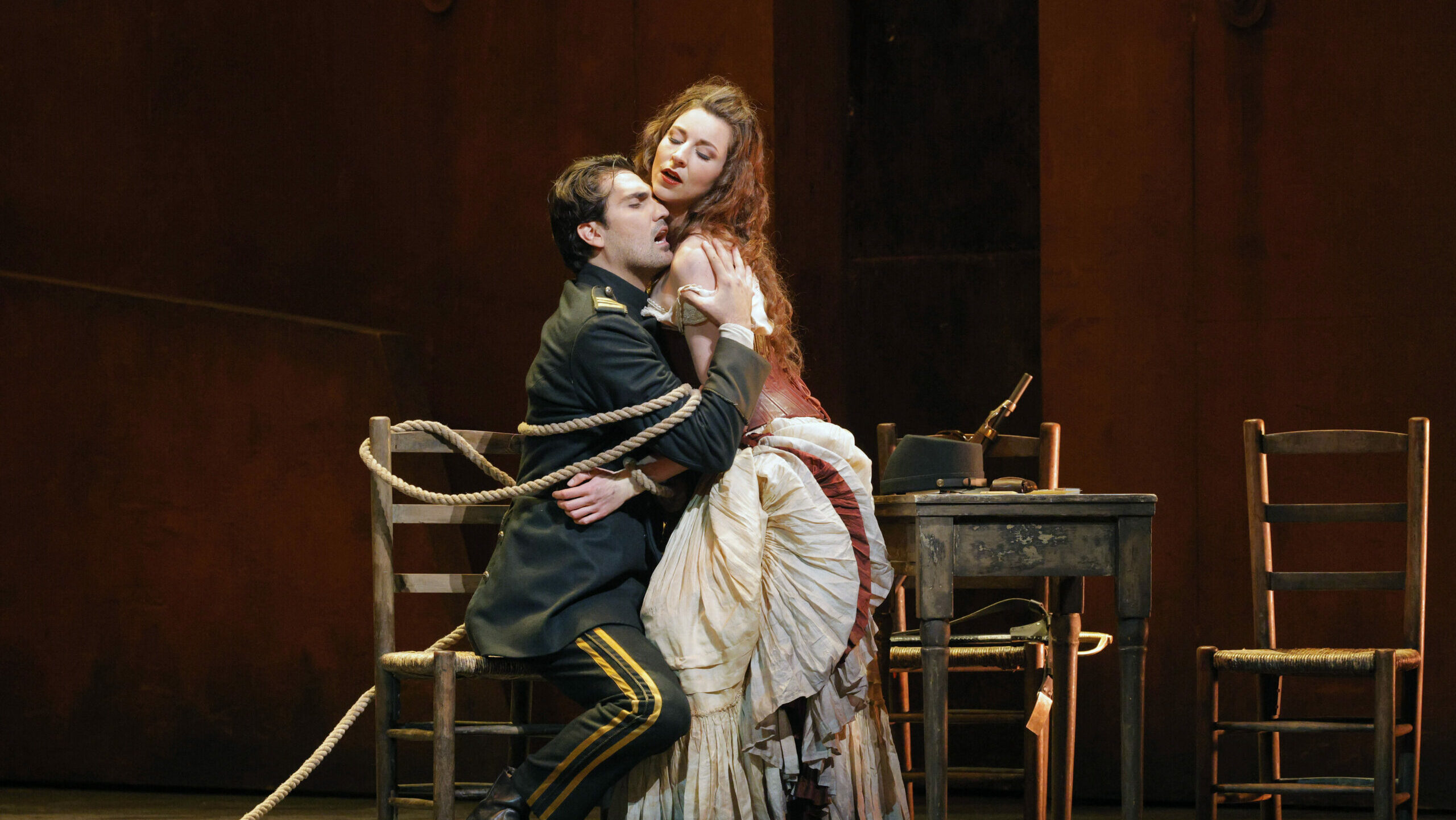
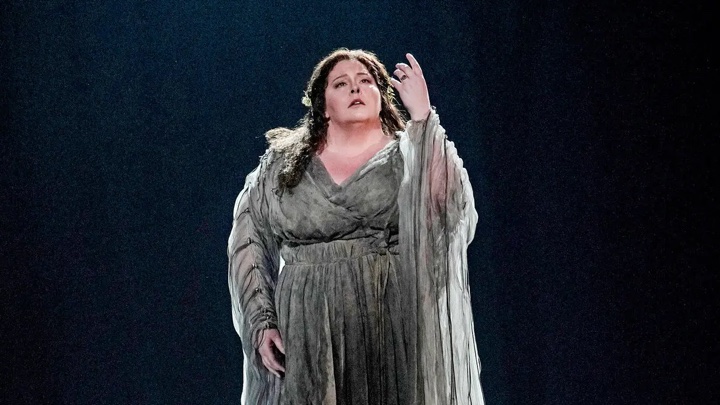
So tweeted Sonya Yoncheva in response to Woolfe’s scathing review of her Norma in the Times on March 5. She accused critics of being “vocal racists”—an unfortunate term, for which she was rightly criticized. Woolfe and his cadres, she protested, had unfairly compared her to singers erstwhile (“ghosts of the past”), failing to appreciate her performance on its own terms: “If what we sing doesn’t correspond to their CD we are condemned.”
Yoncheva took on the mantle of the righteous warrior, proud to defend her progenitures from those hordes of CD-listening, pen-wielding critics: “This doesn’t do any favor [sic] to the new generation of artists and must stop. I know that many of my colleagues will agree with me and I know almost all of them will never have the courage to speak about it for obvious reasons. I feel I must do it.”
And with that, Yoncheva went to war with the weight of history, seeking to obliterate anyone who dare burden her with the pressure of the operatic past. For Yoncheva, our genre’s aesthetic history is an assault on her artistry: woe betide anyone who attempts to historicize her vocal energies, who dares to position her within a performing tradition.
Whether it was a direct response to this Twitter snafu, or a touch of cold that she caught during her appearance at the Academy Awards on Sunday, Yoncheva decided to sit out this Friday’s performance of Norma.
She was replaced by Angela Meade, reportedly flown in at the very last minute to take on the role.
And Meade absolutely triumphed, pulling out all the stops to deliver a commanding performance that should, indeed, go down in history.
Meade sang it big but played it small.
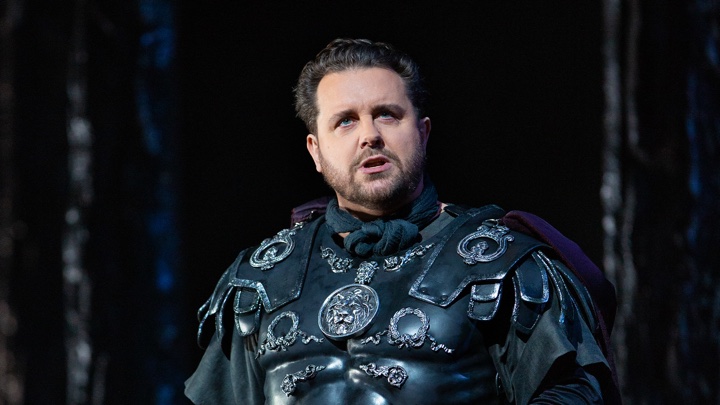
It was an exhilarating performance: bright and piercing, but never harsh or colorless; muscular and taut, but never tense or guttural; rich and voluminous, but never overly wide or overly darkened; sweet and lyrical, but never overly precious.
Her great accompagnato recitatives—really the backbone of this opera—had a radioactive energy, bursting with drama and momentum. I don’t think I breathed for her entire introductory recitative, so blown away was I with the way her voice, through its sheer galvanizing power, seemed to drive each chromatic twist and turn.
Time seemed to stop during her “Casta diva.” She took the aria at a particularly glacial tick; but she had the chops to pull it off. Each note seemed to be suspended in the air, carried by an even, voltaic vibrato and a creamy, mellifluous timbre. This honeyed tone, in combination with an elegant, tapered approach to Bellini’s phrasing, made for an intoxicating, showstopping diva moment.
But the highlight of the performance (for me) was her “Teneri, teneri figli,” which achingly captured the love and pain of Norma’s fumbled infanticide. Meade’s voice betrayed a tremulous anxiety, a vulnerability belying the brawny musculature of her vocality, allowing the audience to see the priestess at her most human. (I must give a special shout-out to the woman in the row behind me who was so convinced by this performance that she whispered to her companion: “Oh fuck! She’s gonna to kill her kids!”)
Crucially, Meade looked so totally natural in this role. Nothing was overdone. It wasn’t overwrought, melodramatic, or campy. She didn’t play her as some vampy, vengeful sorceress, nor as some mystical, telluric Boadicea (resisting the worst tendencies of David McVicar’s production).
And yet it wasn’t undercooked either. There was nothing timid about her performance. She had fire and passion aplenty and no shortage of stage presence: her Norma was mesmerizing, magnetic, impossible to peel one’s eyes away from.
Rather, I found her performance so hypnotic precisely because Meade dared to play the druidess as a perfectly ordinary person. Her Norma seemed like anybody you’d run into at the grocery store—not some grand mythological archetype, but someone achingly familiar.
She had the air of your homespun Jane Bloggs about her, avoiding the grandiose and the histrionic in favor of the humble and the humane. Meade relished in the nuances of glancing human interactions, in the expressivity of mundane gestures, playing down the exoticized performativity of her priestess rituals and playing up her character’s complexities as a mother, a boss, and as a friend.
And she found all this subtlety, all this relatability, within Norma’s character without ever sacrificing the intensity of the drama or the vitality of her performance. Hers was a performance that “played to the back” without ever playing to expectations. I found that very refreshing.
The strength of Meade’s performance—and the fact that she was the first on call to replace Yoncheva when the latter pulled a sickie—leads me to ask: Why didn’t the Met simply cast Meade as Norma in the first place? Their “Met on Demand” website calls her 2013 Norma a “sensation” and goes on to praise the “ample, burnished timbre” with which she furnished her 2017 performances. Surely if anyone had earned their name on the Norma marquee this season, it was Angela Meade.
Yoncheva, meanwhile, not only seems woefully miscast, but also tweets as if she never wants to sing at the Met ever again (“I am speaking on the behalf of many colleagues of mine, who are not willing to return to the Met, because of these kind of writing [sic]”).
I felt that all the performances gelled very well around Meade’s Norma. There was a wonderful alchemy between all the soloists, a succulent vocal chemistry that not only buoyed each individual performer, but also magnified the score as a whole, eliciting delicious confluences and contrasts within the duets and ensembles.
There was a genuine sense of communication and collaboration between singers, a sense that they were responding to each other in real-time, matching the tone and style of each other’s vocalizings. More often than not, it was pure magic.
Michael Spyres’s Pollione was heavier, more baritonal than one might expect for the role. His bronzed, full-throated lower register made for particularly meaty listening, and he seemed to carry much of this weight into the middle and upper registers. His high notes sounded as if they required a great deal of effort.
This was not necessarily a bad thing. Spyres never sounded strained or uncomfortable in the tessitura. Rather, Spyres bottom-up weighting of the voice gave the role new and interesting (often darker) colors.
I’ve heard other tenors sing this role with a kind of smooth, effulgent charm (well befitting a dashingly cocky Roman soldier), dispensing with the coloratura as if it were the easiest thing in the world. Spyres’s performance was not like that: his Pollione was gruff, brooding, world-weary, haunted. The highest peaks of Pollione’s cabalettas were reimagined as heaving emotional paroxysms, burdened with the great heft of his torment.
His “dream” aria was particularly moving, full of grit, depth, and color. He seemed to bite into the strange dissonances of Bellini’s unusually descriptive scoring here, capturing the bathos and the horror of this narrative moment.
He was no less expressive when singing with the two prime donne: the vocal weight and dramatic gravitas that he brought to “Qual cor tradisti” was the perfect complement to Meade’s more forceful portrayal.
Ekaterina Gubanova took a while to warm into the role of Adalgisa: initially, her voice lacked cut or focus and was perhaps a little overly “covered” for my taste. There was something held back, reserved, a little too safe about her “Sgombra è la sacra,” and, although I enjoyed her silken, honeyed tone, I would have liked a little more dramatic contrast in her scena with Pollione.
However, Gubanova quickly found her stride. She shone particularly brightly in her scenes with Meade, with whom she blended especially well: Gubanova’s earthy mezzo rounded out the raw brightness of Meade’s sound, creating a delightful vocal phosphorescence in their joint cadenzas.
Hers is a larger, more cumbersome voice than one might expect in this repertoire. And as the opera wore on, Gubanova seemed more inclined to take bigger vocal risks, leaning more into the conventions of the bel canto tradition: letting the coloratura flutter a little lighter, or letting the high notes ring out a little longer. This brought a new expressivity to her voice, evincing a flexibility and a vitality I haven’t heard there before.
If there were messy musical moments in Friday night’s performance, it was due to Maurizio Benini’s conducting, which was, on the whole, rather roughshod. It had its moments, for sure: the overture sounded marvelous, resplendent in its musical fire and brimstone; and I was bowled over by Norma’s entrance music in Act I, which swept through the house like a great chromatic tornado.
But the actual bones of the opera—the arias, ensembles, recitatives, etc.—were all over the shop. During the cavatinas, the strings could rarely decide on the tempo of the accompanying ostinati, with frequent slipping and sliding between the desks; during the cabalettas, Benini seemed to be at frequent risk of losing the singers. (In fact, I think he did lose Meade during “Si fino all’ore estreme”; she started peering into the pit like a hawk after that.)
But Benini’s conducting wasn’t even the most distracting element of Friday’s performance. That award goes to David McVicar’s deeply distasteful staging.
I actually rather like the production design: Robert Jones’s cooly forested set has a stark beauty to it, with its starry ceiling and towering monolith.
What I object to is McVicar’s gratuitous use of non-singing extras, which, in recent productions, has escalated to an unsavory extreme.
The “stars” of Sir Dave’s production are a troupe of beefy, bearded celts in various stages of undress, covered in grime and painted with runes, wielding sundry phallic weaponry. Guns on show and swords erect, these burly Gauls stood in the front of almost every crowd scene, whether they were needed or not, like a sad troupe of WWE rejects.
I kept wondering why they were there. They don’t sing (only a couple of them can be bothered mouthing the words along with the chorus); they can’t dance; they’re not a corps de ballet. They seemed to have been cast purely because they look like brawny Viking warriors, because they’ll look good in the front of the “Met Live in HD” broadcast.
I just found their presence disquieting. They hollered and grunted at annoying intervals. They shuffled around during important arias for no apparent reason. They ran about waving spears or swinging simitars like they were at a LARPing convention.
McVicar always seemed to have some little piece of eye-catching choreography for these rugged Celts: They pranced about the stage, posturing with big, aggressive gestures, not only upstaging the opera’s lead singers, but also the music itself. There’s the strange business with the gorged ox heads, and an excruciatingly long sequence involving log-hauling.
Between their ridiculous muscle-bearing outfits, their overly performative Britannic masculinity, and their propensity to scream at inappropriate times, McVicar’s extras would have been more at home at the St. Patrick’s Day parade than on the operatic stage.
Ultimately, McVicar’s use of extras is an insult to the Metropolitan Opera Chorus, who, in this production, are essentially shoved to the back of the stage, obscured by a curtain of supers. When they sing, they are barely visible: McVicar always distracts from their talent by having non-singing actors do other stuff to mask their presence.
He deliberately places them in darker, more boring costumes than his beloved Gaulish warriors, relegating them to the back of the stage like so much chopped liver: they might as well be playing trees for all McVicar cares.
This is a mighty shame, as the chorus are sounding better than ever, and even better (if this is even possible) than they did in their triumphant performance of Lohengrin. Yet, McVicar seems convinced that the chorus are not capable of acting and singing at the same time, that they must stand around aimlessly in the background—out of sight, out of mind.
Crucially, for me, McVicar’s foregrounding of non-singing extras shatters the wonderfully operatic illusion that we have entered a world in which everyone expresses themselves through song.
Seeing a large handful of prominently featured characters remain staunchly silent, even as the entire stage lights up with the sound of Bellini’s glorious ensembles, gives the eerie impression that these characters are not part of the “world of the opera,” that the diegesis itself has somehow been ruptured.
They seem like unwelcome interlopers in a world governed by the compelling power of music: rather than adding to the spectacle, their refusal to conform to its internal logic detracts from it.
Indeed, we want to see the chorus sing, not only to fully appreciate their talent, but because the “people” in opera—the faceless masses—are not some silent majority. They have always inhabited the same noisy, musicalized world as its soloists.
Photos: Ken Howard/Metropolitan Opera (Meade); Marty Sohl / Met Opera (Spyres, Gubanova)


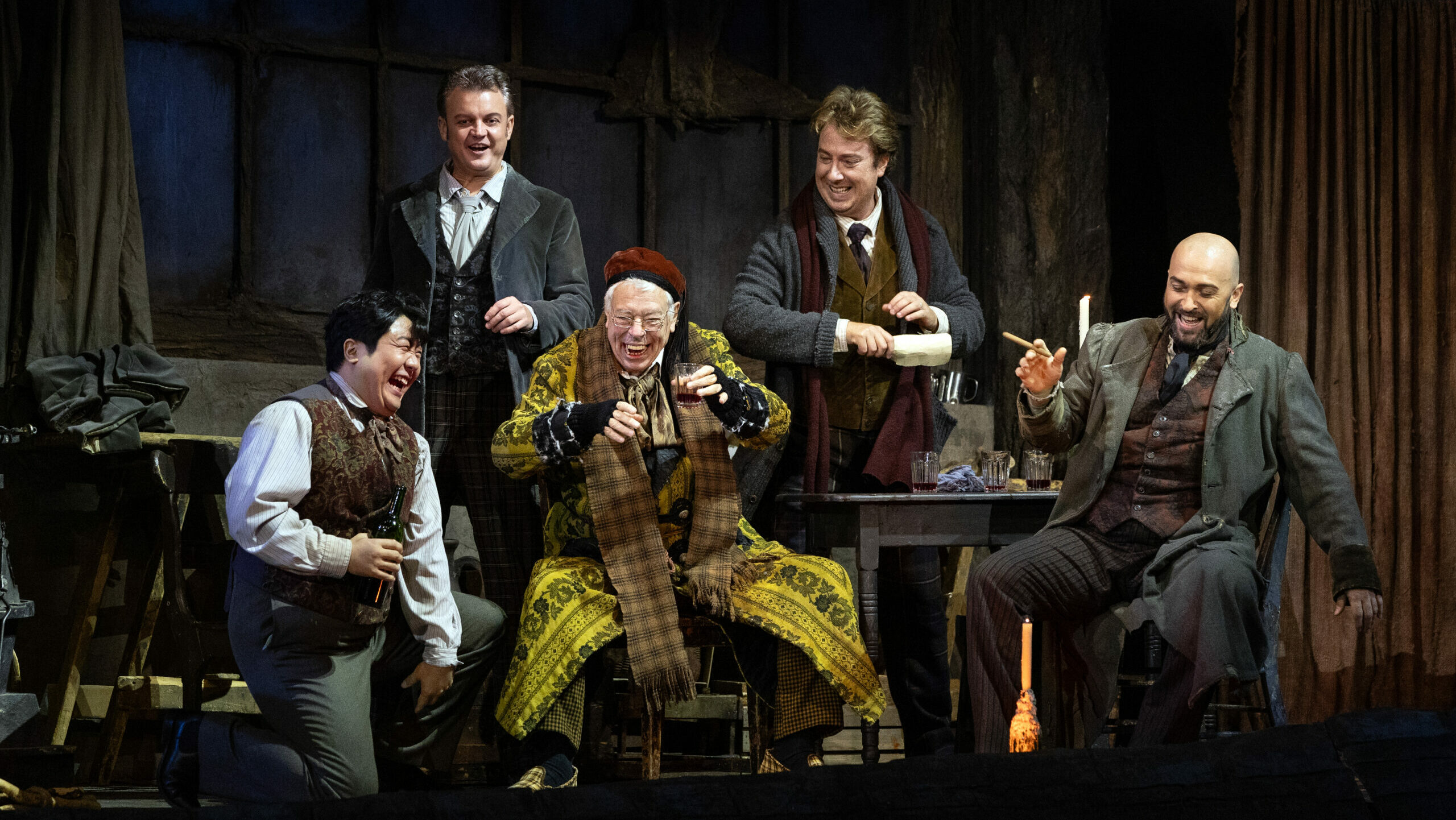
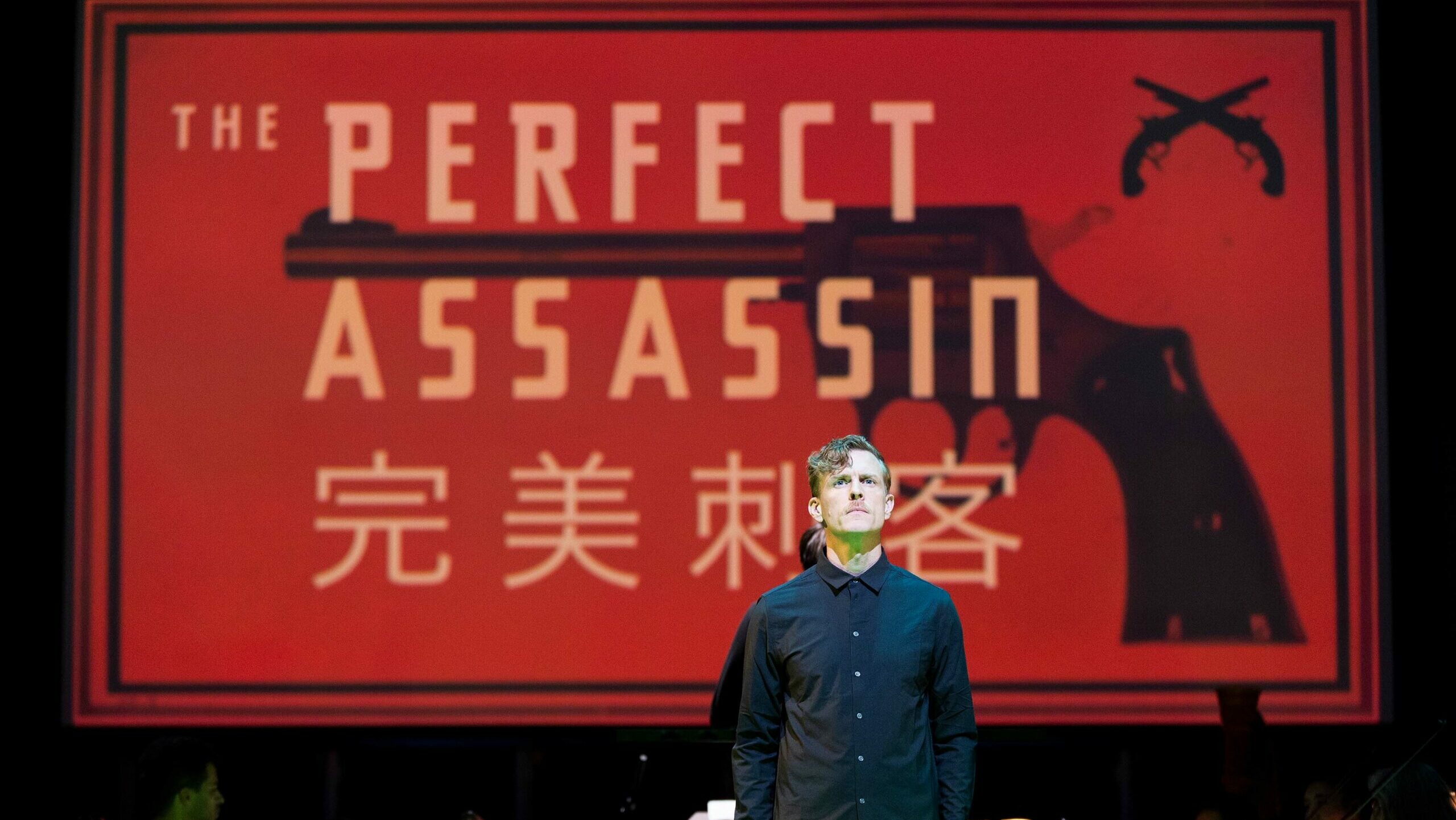
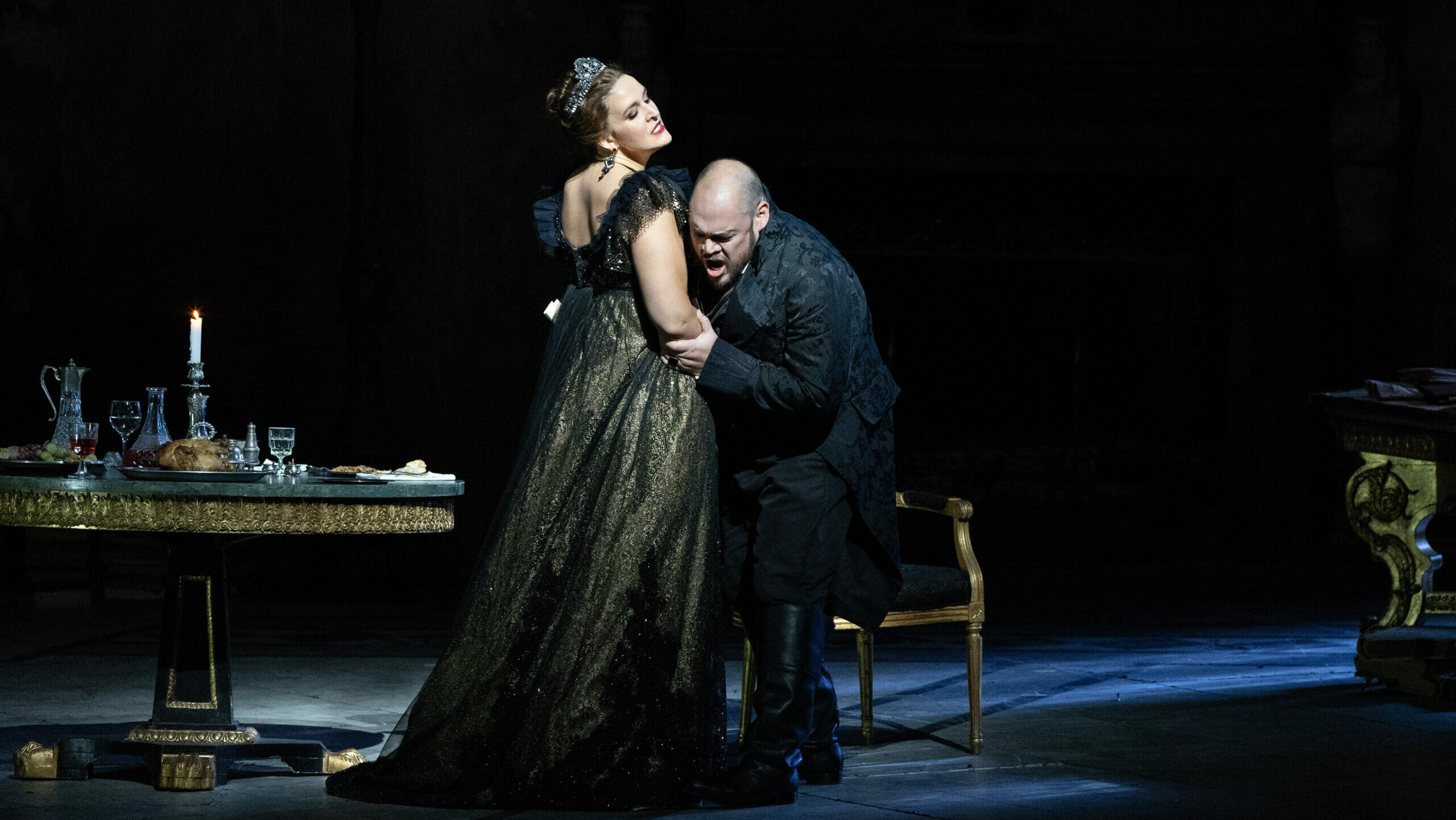


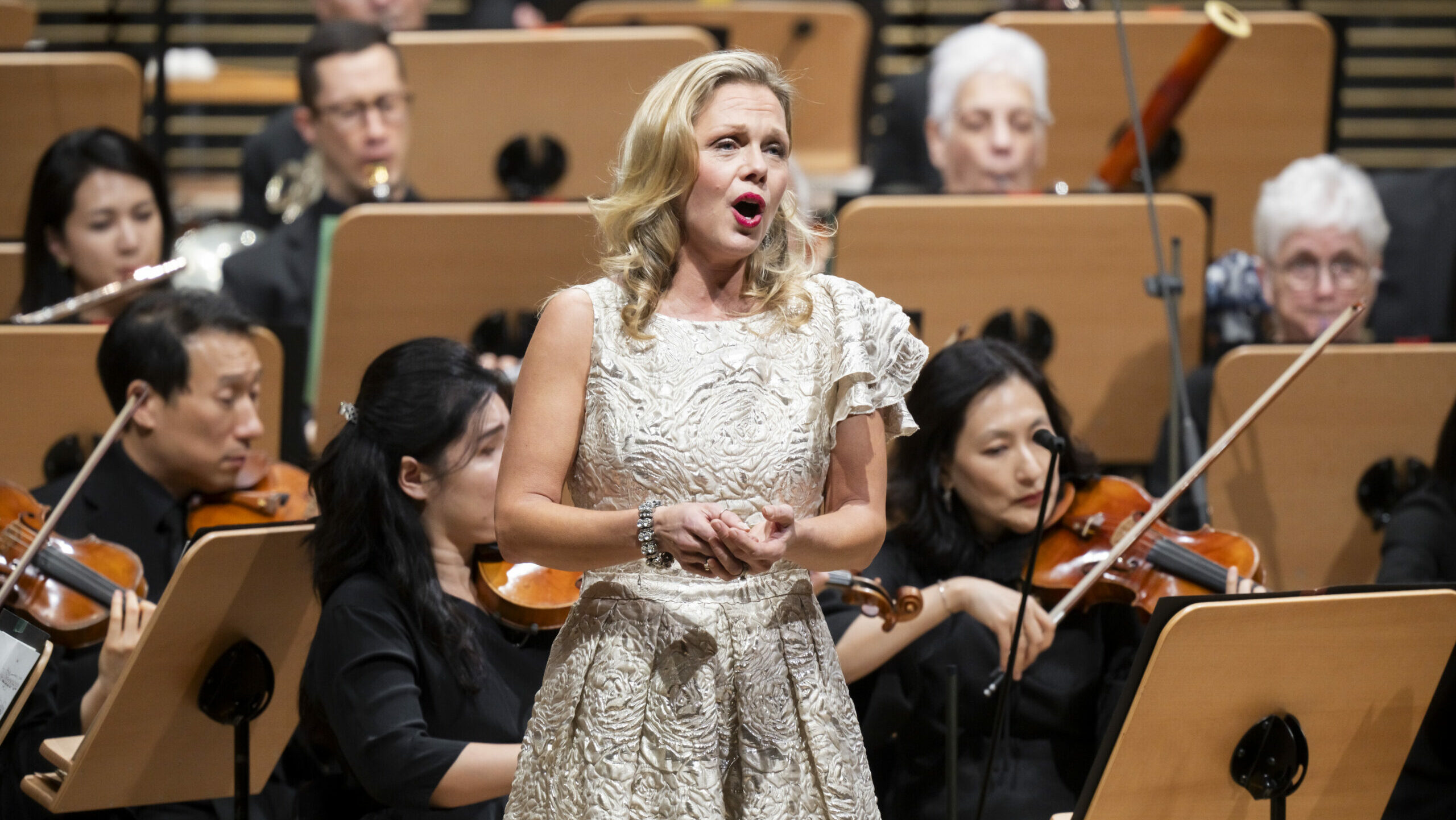
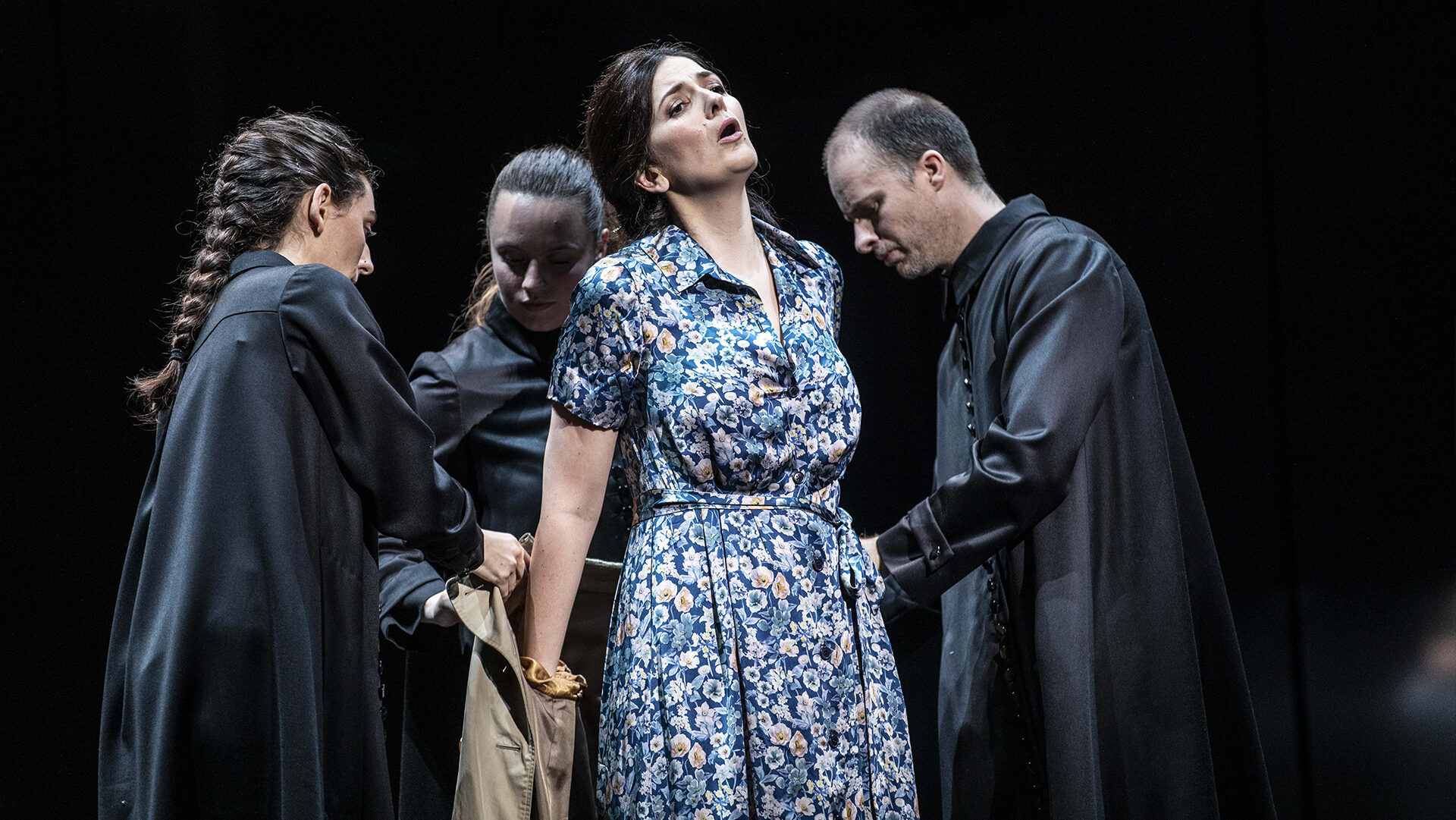
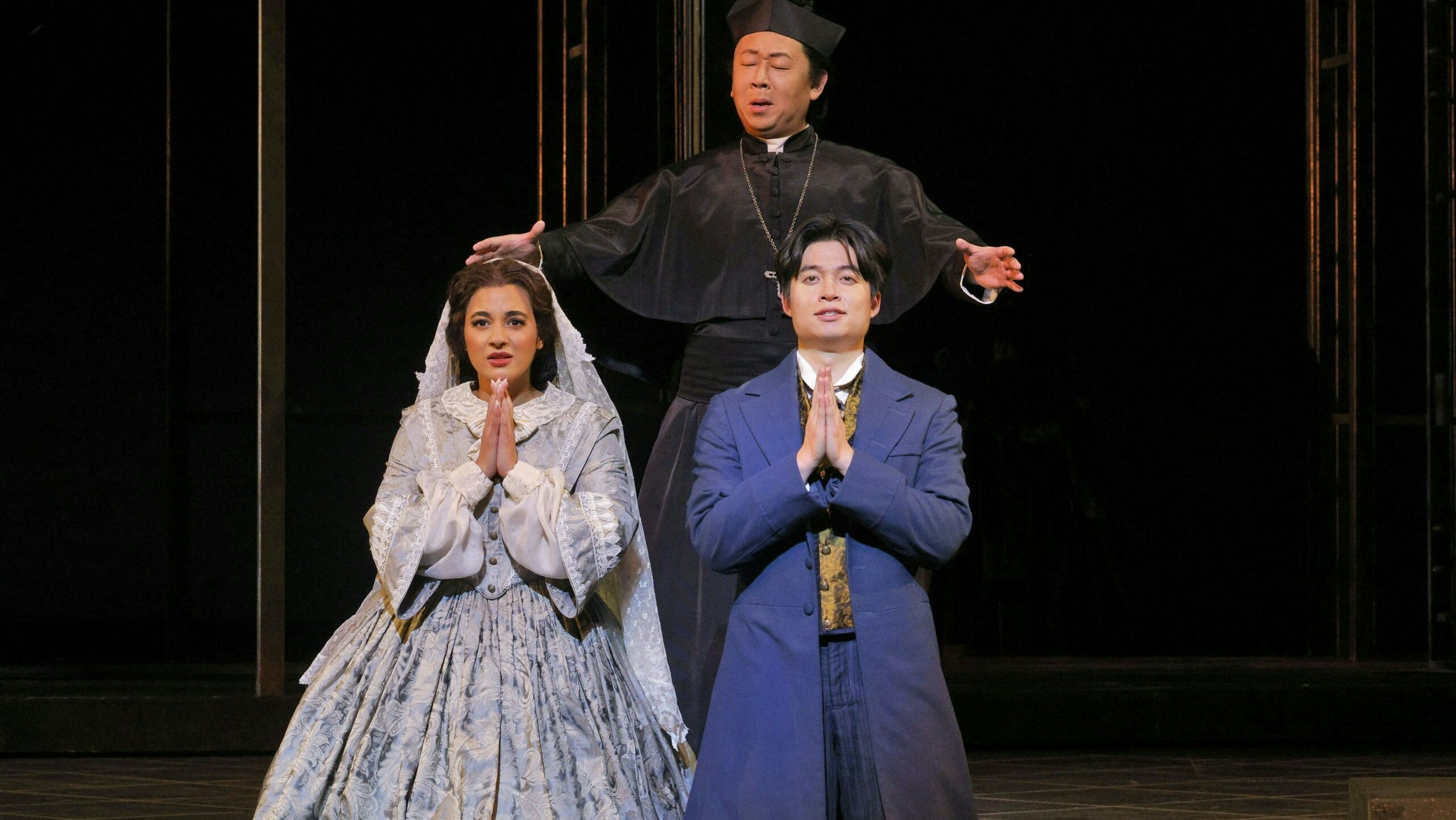
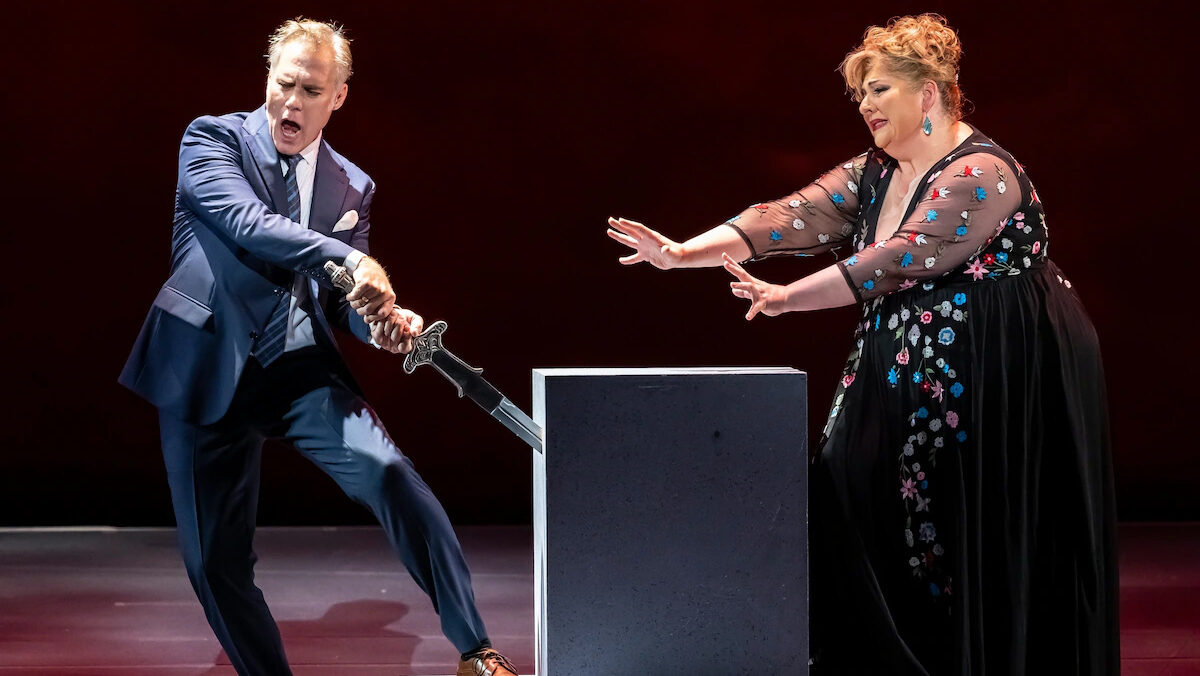
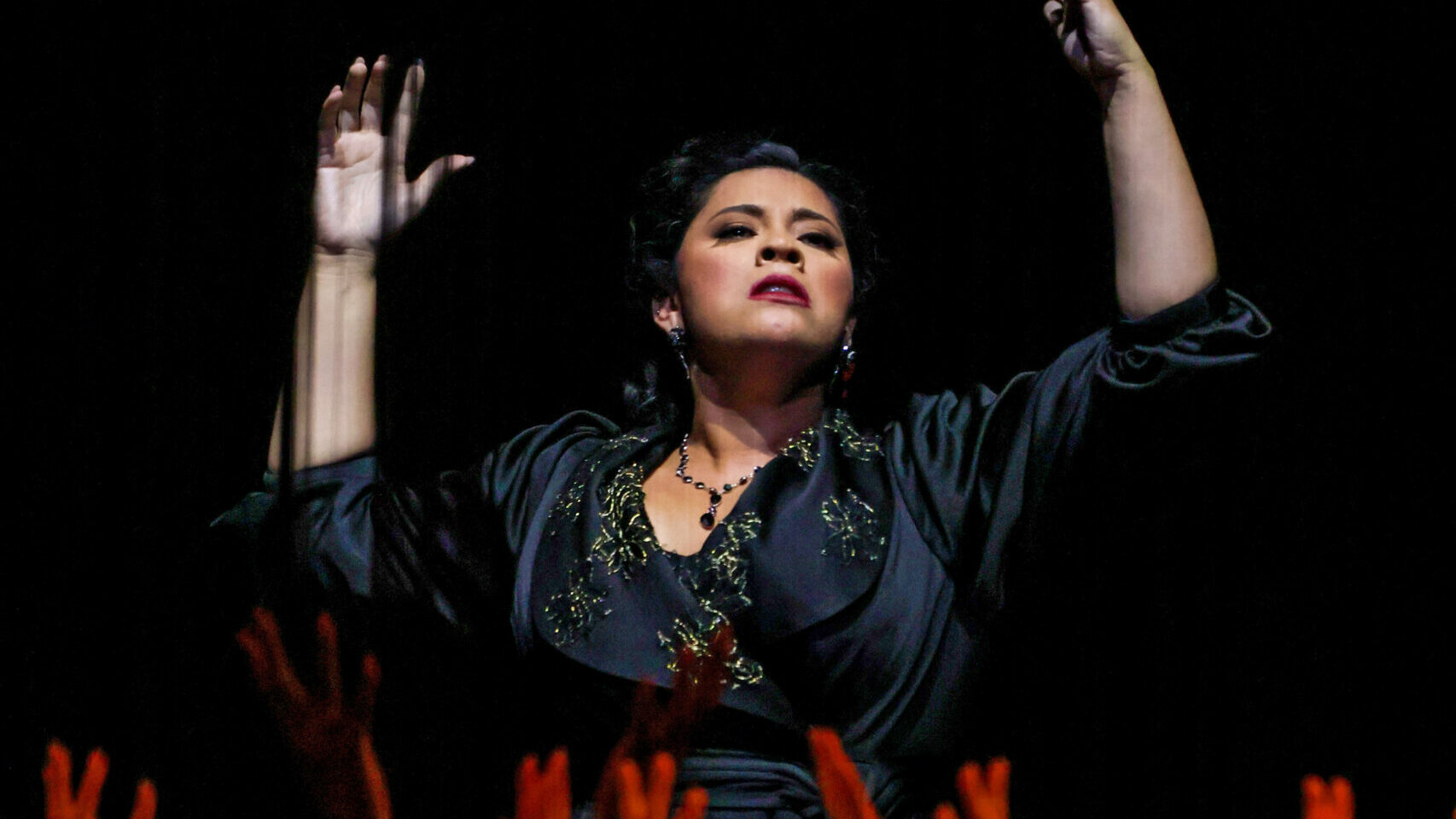
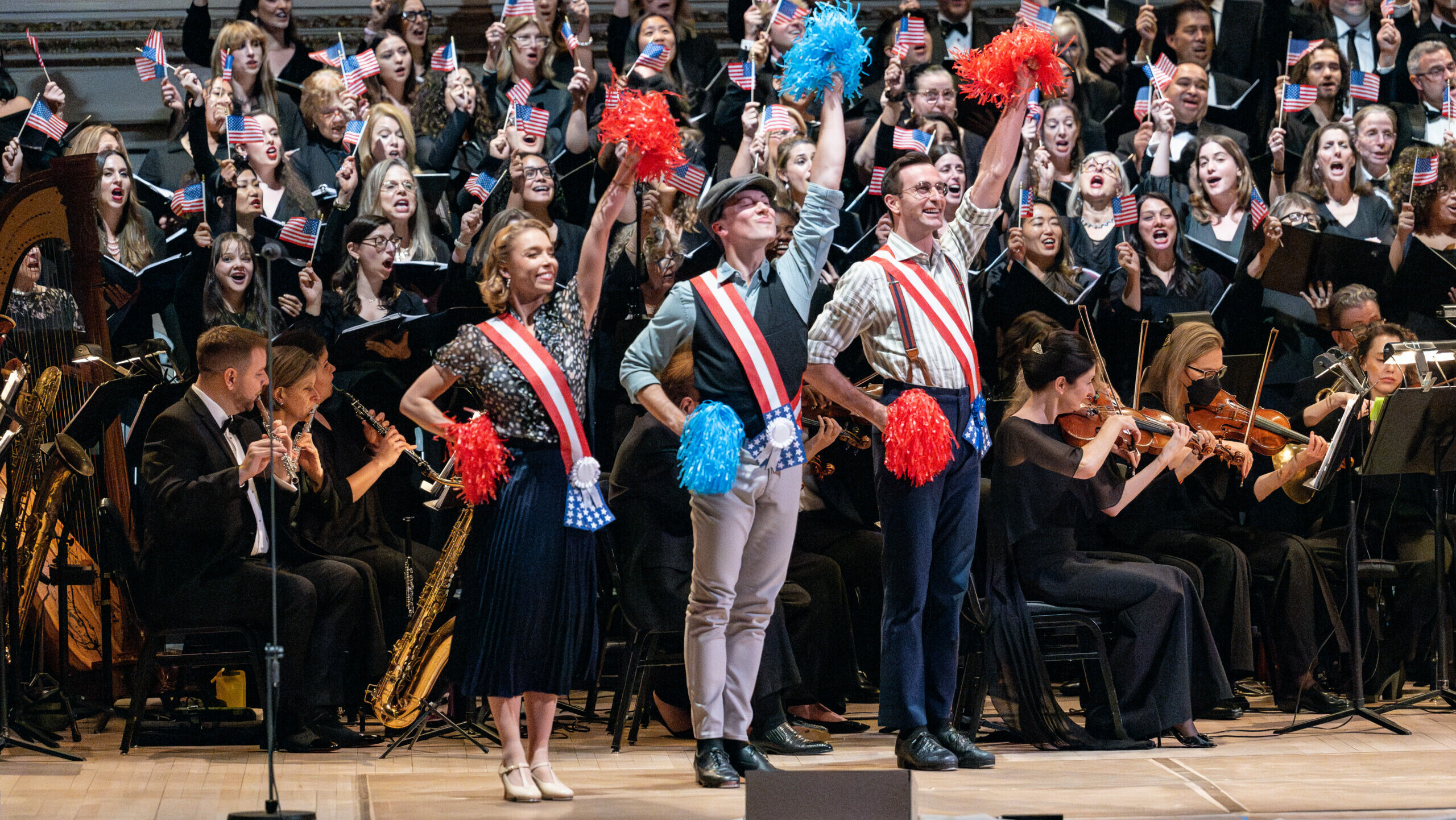
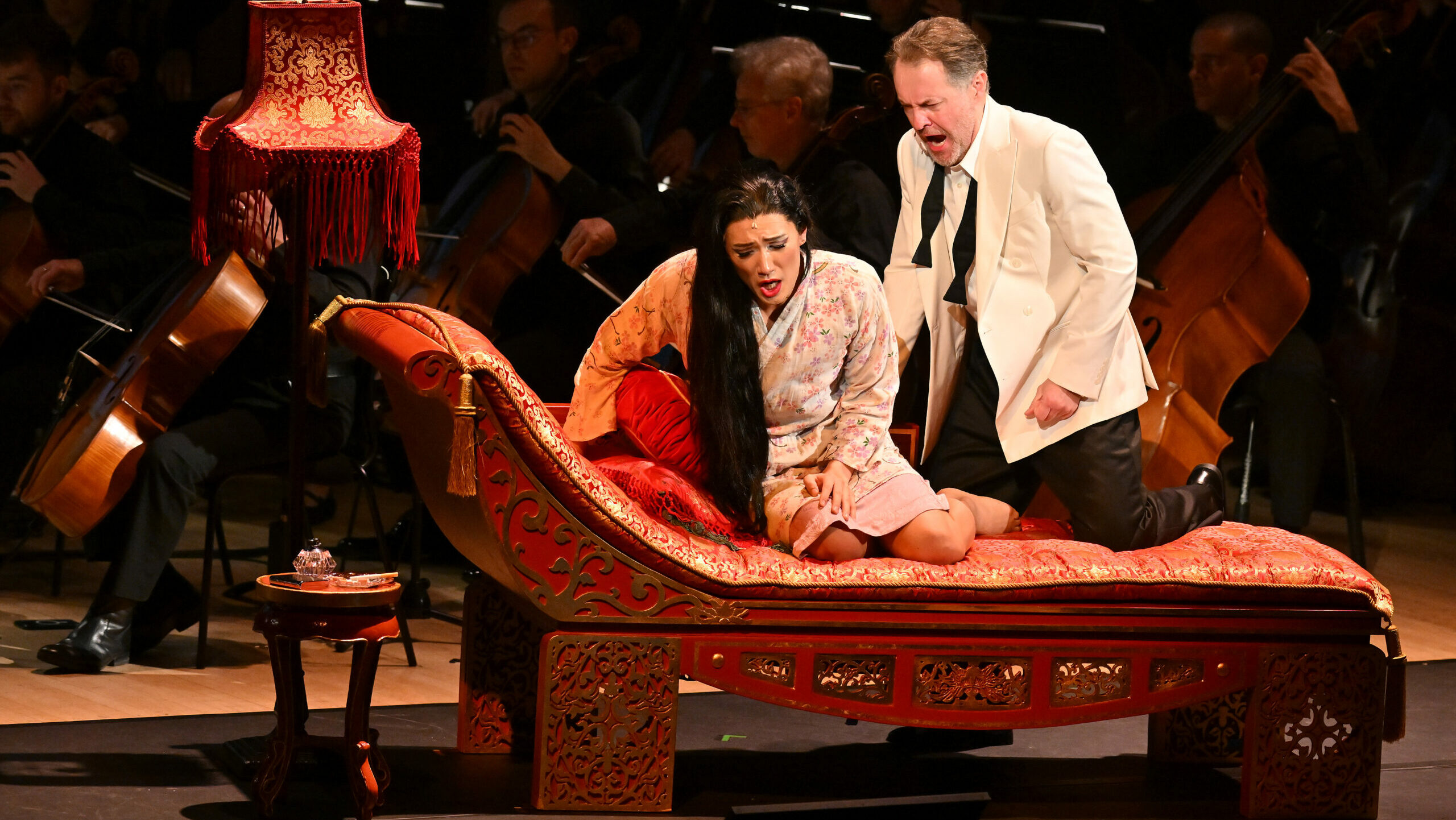
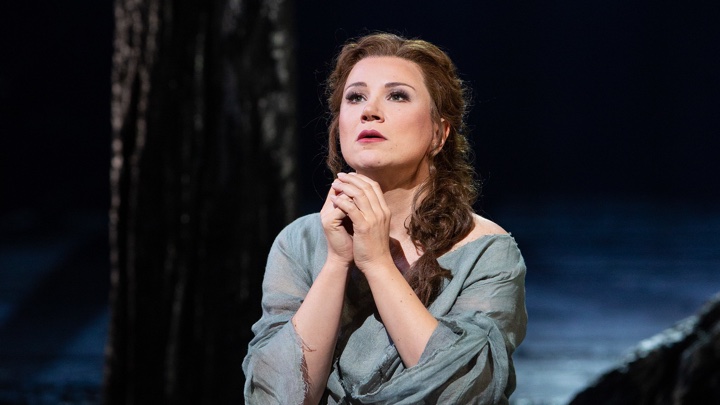





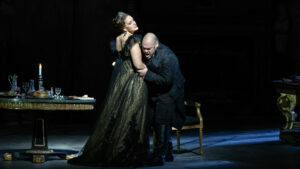
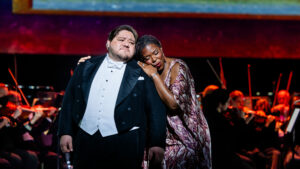




Comments